Ghalibaf Urges Conservative Unity Ahead of June 28 Election
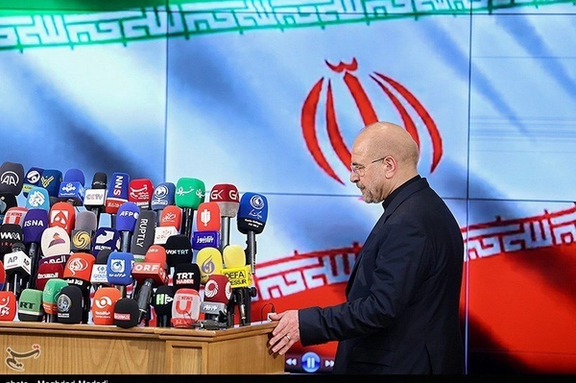
Iranian presidential candidate and parliament speaker Mohammad Bagher Ghalibaf urged other conservative contenders to step down in his favor before the June 28 snap election.

Iranian presidential candidate and parliament speaker Mohammad Bagher Ghalibaf urged other conservative contenders to step down in his favor before the June 28 snap election.
Citing his "greater readiness," Ghalibaf called for “unity” among the five conservative candidates in a TV address Sunday.
He stated on state TV, "I am among those who reminded my campaign staff of two points yesterday: first, to maintain ethics, and second, that the ‘Revolution Front’ must rally behind one candidate before June 28. There is certainly rationality, selflessness, and kindness within the Revolution Front."
With five of the six candidates coming from the conservative ranks, there is little choice for Iran when it goes to the polls later this month following the sudden death of former president Ebrahim Raisi.
As Iran endures its worst economic crisis since the founding of the Islamic Republic and sees the biggest challenge to government legitimacy in its history, he presented himself as the leading candidate. "I stepped forward after the death of Ebrahim Raisi because the country is at a critical juncture, and I felt I was more prepared than the others," he said.
Raisi and his entourage lost their lives in a helicopter crash in East Azarbaijan province on May 19, triggering this month's snap elections which are expected to see a record low turnout.
Also on Sunday, Mahmoud Nabavian, a member of parliament and a prominent member of the ultraconservative Paydari Front dismissed reports of Saeed Jalili withdrawing from the presidential race as "electoral lies" and labeled their dissemination as "a religious sin."
Nabavian asserted, "As someone who is part of his campaign and accompanies him, I completely deny this claim."
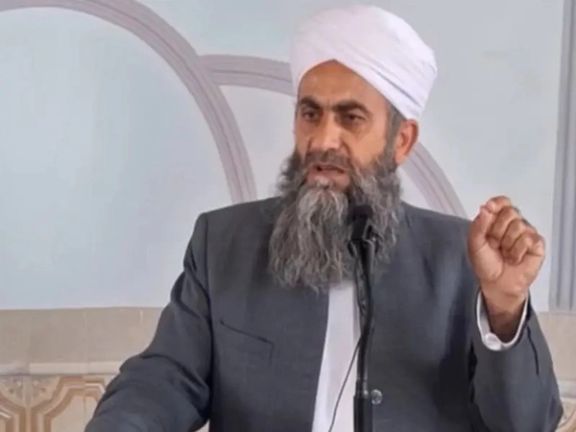
Sunni cleric Mowlavi Abdulahad Parsa has been removed from his position as leader of Friday prayers as the Iranian government continues to oppress the Sunni community.
The decision, issued in absentia by the Special Clergy Court of Mashhad, also bans Mowlavi Parsa from delivering speeches within the province, according to rights group Haalvsh’s report on Saturday.
Security agencies have threatened the residents of Taghan village with severe consequences if they protest the decree or support Parsa. A source told the rights group that security agencies also threatened the residents that they would be deprived of all government services and allocation of construction funds to the village.
Parsa was previously arrested and interrogated for a week in October 2022 amid the nationwide uprising in which his sermons addressed government cruelty.
He especially spoke out against Zahedan’s brutal Bloody Friday massacre when security forces opened fire on peaceful protestors on 30 September 2022, killing over 100 people. Security forces fired shots at protestors from rooftops near the Grand Mosalla prayer hall and the Makki Mosque, Zahedan's main Sunni mosque.
The cleric also supported the stance of the famed preacher, Mowlavi Abdolhamid, a prominent Sunni cleric and outspoken critic of the Iranian government, who serves as the Sunni Friday prayer Imam in Zahedan, the provincial capital of Sistan-Baluchestan.
Sunni clerics have continued to endure legal harassment in the wake of the protests as the Shia government continues to suppress the minority which constitutes around 10 percent of Iran's population.
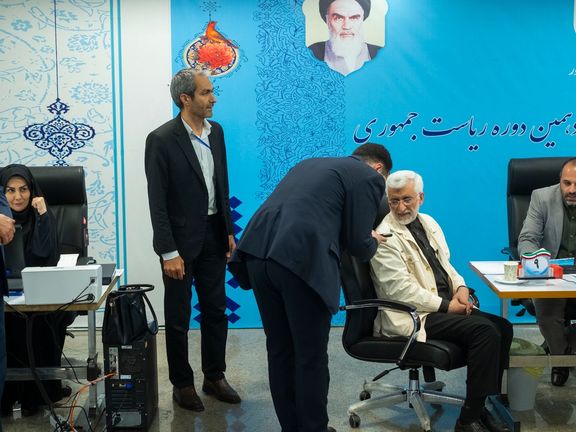
Iran's handpicked presidential candidates are facing scrutiny from the media and social media users for their unrealistic plans, promises, and the false claims their supporters have made about their character.
Most criticism on social media revolves around former nuclear negotiator Saeed Jalili and his rival, Parliament Speaker Mohammad Bagher Ghalibaf. Both candidates hail from the so-called “Principlist” or hardliner camp, but their supporters are currently fighting an intense war on social media.
Jalili, for instance, has been widely criticized for promising voters to remedy “hundreds of years of lack of development in a few years” in contradiction to his statement less than two years ago that “enemies” were worried by Iran's progress because it was “near the peak”.
“What has happened close to the election time that we are [now] not only not close to the peak but are also hundreds of years behind, so people must vote for you to compensate?” the moderate conservative Asr-e Iran news website asked him.
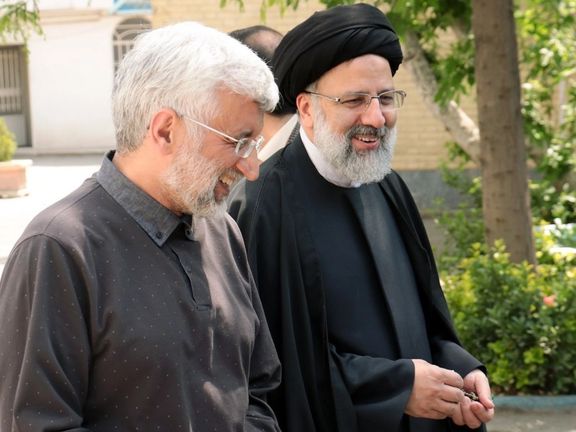
Jalili is also widely accused of proposing unrealistic plans with huge confidence. In a televised program, he claimed that Iran would not need to sell oil if it built “ten oil refineries” like the Persian Gulf Star Oil refinery with private sector investment.
Critics say Jalili must be ignorant of the fact that the said refinery processes gas condensates, not oil, and that hundreds of billions of dollars of investment is required for such massive projects. The private sector, they argue, has no interest in such projects and would rather invest in other countries where investment is safer and more profitable than in Iran.
Ghazizadeh-Hashemi, another ultra-hardliner candidate, similarly contended in a television discussion with experts that Iran must be one of the “global producers of the Internet”.
“I wish his advisers explained the Internet to him that the Internet is a means of communication, not a product,” former lawmaker Seyed Ali Mousavi tweeted.
Jalili’s campaign has also been widely criticized for “hypocritically” emphasizing his “very simple lifestyle” because his supporters claim he drives a domestically produced vehicle instead of a luxury car, or commutes by public transport with no bodyguards.
Critics, however, have posted photos of Jalili that prove he has been using not one, but at least three different vehicles of the same make and color with different registration numbers in the past few days. Some also claim his very ordinary-looking vehicle has in fact been bulletproofed.
Recent comments by Jalili’s advisers including the newly elected lawmaker Amir-Hossein Sabeti have also stirred great controversy. Sabeti who has joined Jalili’s campaign and participates in televised and radio discussions alongside him or on his behalf earlier this week unintentionally disclosed information not meant for the public’s knowledge.
All lawmakers are struggling in the parliament because there are no foreign currency to pay for importing gasoline, he said. “Blackouts will begin in a couple of weeks because we have no power plants,” Sabeti who blamed the Rouhani administration for the shortages said.
Critics say Sabeti describes the situation as if the country is in a “state of war” and argue that those from the rival camps would have been accused of undermining national security if they had made similar disclosures. In fact senior regime officials and clerics have repeatedly said that candidates should not exhibit negativity about the country in their campaigning.
Besides abundant criticism and allegations of corruption against him, Speaker Mohammad-Bagher Ghalibaf’s advisers have also provoked strong criticisms in the past few days by making false claims and condescending remarks about others.
When speaking of government employees, Ghalibaf’s economic adviser, Amir-Sayyah, accused them of ignorance and wasting their time for a meager salary instead of running their own businesses. Sayyah had to release a video to claim he was only speaking about “corrupt civil servants” but did not apologize.
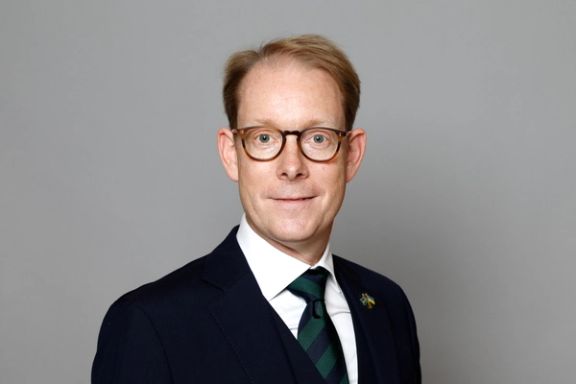
Sweden's Minister of Foreign Affairs, Tobias Billstrom, has publicly acknowledged a significant oversight in travel advisories concerning Iran, following the recent controversial prisoner swap deal with Tehran.
Sweden's Minister of Foreign Affairs has publicly acknowledged a significant oversight in travel advisories concerning Iran, following the recent controversial prisoner swap deal between Iran and Sweden.
The exchange involved a convicted war criminal, Hamid Nouri, who was serving a life sentence in Sweden for his role in the 1988 mass execution of prisoners serving their sentences in Iran, released in exchange for Swedish EU diplomat Johan Floderus and Swedish-Iranian citizen Saeid Azizi.
"A travel advisory to Iran was not in place when Johan Floderus went there," Billstrom admitted in a statement released on the platform X on Sunday.
"A decision to advise against all non-essential travel to Iran was made only on April 28, 2022, which was eleven days after Johan Floderus was detained in Iran. Subsequently, on June 23, 2022, a broader advisory against all travel to Iran was issued," Billstrom added.
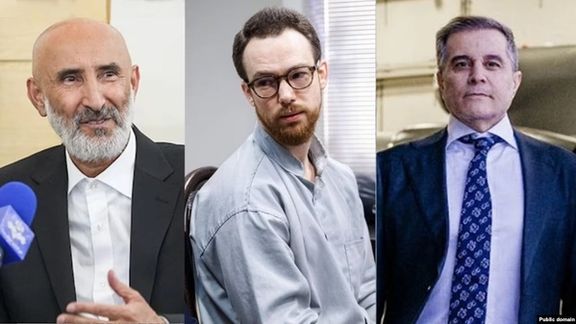
This admission highlights a critical lapse in Sweden's official guidance, particularly concerning the safety and security of its citizens traveling to Iran. The error was especially costly in light of the detention of Swedish dual nationals in Iran in previous years including the arbitrary arrest of Ahmadreza Djalili’s in 2016, who was also left out of the prisoner swap deal.
Djalili was arrested in 2016 while visiting Iran as a scholar and accused of espionage. He was later tried on trumped-up charges and sentenced to death, without due process of law.
This oversight has raised broader questions about the Swedish authorities' negligence, as they delayed issuing a warning against all travel to Iran until June 2023, despite clear threats from Iranian officials in May 2022 in retaliation for Nouri’s trial in Sweden. On May 19, 2022, Amnesty International issued a public statement warning of Iran's threats to execute Ahmadreza Djalali in response to Hamid Nouri's prosecution.
Most Western countries have strict travel warnings for their citizens urging them not to visit Iran, which has routinely arrested ordinary travelers and held them as de fact hostages to force Western countries to make concessions.
Amnesty International highlighted in its statement, “State media articles published on May 4, 2022, provide further evidence that the Iranian authorities are using Ahmadreza Jalali’s life as a bargaining chip to pervert the course of justice in Sweden and compel Swedish authorities to release Hamid Nouri.”
Yet, Sweden failed to issue a warning to its citizens until it was too late. Johan Floderus, an individual working for the Swedish foreign service decided for personal reasons to visit Iran and was arrested by the notorious intelligence organization of the Revolutionary Guard.
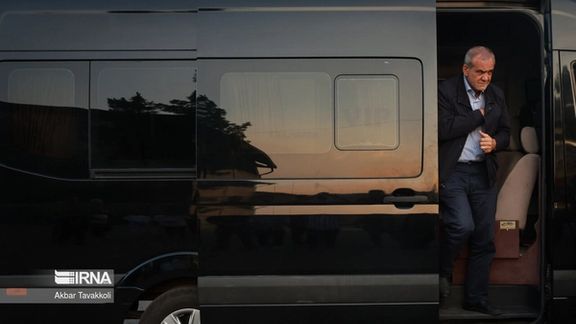
A key question is whether 'moderate' candidate Masoud Pezeshkian can motivate reform-minded and other voters, who have abstained from voting in the last three elections in Iran, to return to the polls.
The six handpicked candidates in the upcoming presidential election, including Pezeshkian, have yet to offer any new or interesting solutions to potential voters about reversing their declining economic well-being.
Pezeshkian's candidacy raises questions about whether he represents the Iranians who have become disillusioned with the government after several rounds of protests and violent confrontations in recent years. There is uncertainty about whether voters will trust him after so many years of the government barring all hundreds of candidates from elections. His sheer presence might not be enough to bring disillusioned voters back to the polls.
The situation has plunged Iranian society into deep despair about their demands not being met by the government and concerns about the future of the country. Desperation and protest have been the main characteristics of Iranian society since 2017 when the first in a series of large protests began. These sentiments have led to the lowest voter turnouts in the history of Iranian elections over the past 45 years.
Two Iranian sociologists Mohammad Reza Javadi Yeganeh and Taghi Azad Armaki, both from the University of Tehran, have spoken to Rouydad24 news website in Tehran to address these questions.
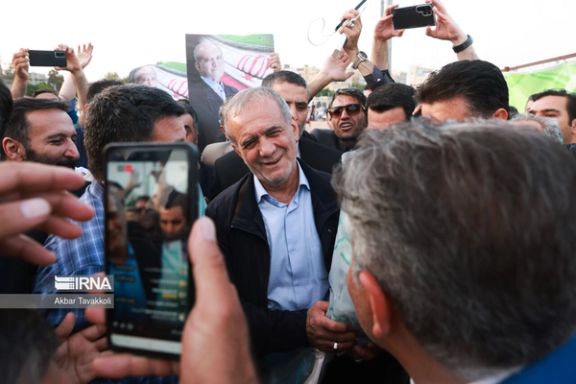
Yeganeh acknowledged voters' frustration with the electoral process but emphasized that voting and pursuing gradual reforms remain the only solutions. Meanwhile, Armaki argued that intellectuals must convince the public that gradual reforms can be effective; otherwise, Iranian society risks a dangerous collapse.
Yeganeh said that as a result of the government's approach to elections Iranians have lost hope in political change through voting. He reiterated that forecasts indicate a low turnout in the upcoming election. The expectations are about a maximum turnout figure of around 50 percent of eligible voters, he said, adding that reformists have lost a major part of their vote basket anyway. The voters know that the candidates are not going to be able to meet their promises about improving the people's situation.
He also said that it is difficult to rebuild the ties between the people and the government. Yeganeh added that if the reformist figures who want to vote do not say that loud and clear during the next week, the turnout will hardly reach 50 percent.
Meanwhile, Dr. Armaki said that a large part of the society no longer listens to the government due to increasing dissatisfaction. They ask themselves why they should interact with a government that does not pay any attention to their problems. Even if they decide to vote at the last moment, that will not change anything.
Armaki added that Iranians have been demanding change during at least the past 15 years. If Pezeshkian can present himself as the advocate of change while other candidates advocate the status quo, then he might have a chance.
This comes while many voters who are vocal on social media do not believe in Pezeshkian's abilities as a change maker. Some social media activists criticize him for not responding to some questions and saying that experts will tackle them. Arash Sepehri wrote: "No one expects him to be an expert on everything. He is surrounded by experts with often conflicting ideas about the economy."
Another social media activist and journalist, Mohammad Parsi criticized all of the candidates about their views on a variety of matters, "From distribution of meat in the market to eliminating the filtering of social media and sorting out the problem of housing. You are presenting the bare essential needs as dreams and promises." He charged that "after 45 years, the candidates have given up the dream of turning Iran into an Islamic Japan, instead becoming the North Korea of the Middle east!"
Yet other social media users, mocked Pezeshkian for responding to a question about his economic plans with a long verse in Arabic that would make sense to very few Iranians as Persian speakers. In the video that went viral, even the interviewer, a seasoned businessman and former Trade Minister Yahya Al-e Es'haq, looks bewildered by the answer, let alone the man in the street who probably does not know there is going to be an election soon.
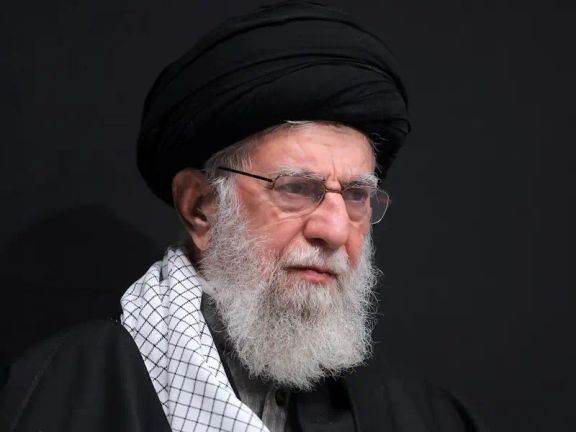
Iran's Supreme Leader Ali Khamenei has branded children's toys a 'cultural invasion' as the reach of Iran's theocratic dictatorship deepens further.
Khamenei has declared the toy industry as "future-making," arguing that foreign toys do not conform to Iranian culture and suggesting that even children's playthings can be tools of Western influence.
Mohammad Mehdi Baradaran, Deputy Minister of Industry, revealed Sunday that despite a reduction in the smuggling of foreign toys amid the regime's crackdown, to less than half of previous levels, Khamenei continues to express concerns over their presence in Iran.
It is yet another example of the regime's intrusion into the country's private lives, which extends from internet bans and dress codes, to children's entertainment. Dolls such as Barbie have been blacklisted.
Over the years, Iran has unofficially banned a range of things from unveiled mannequins to wearing Western neck ties in court or government offices.
Meanwhile, as the focus remains on controlling the country's citizens, the regime remains locked in the worst economic crisis since the founding of the Islamic Republic and at the heart of the Middle East's most turbulent times for decades.